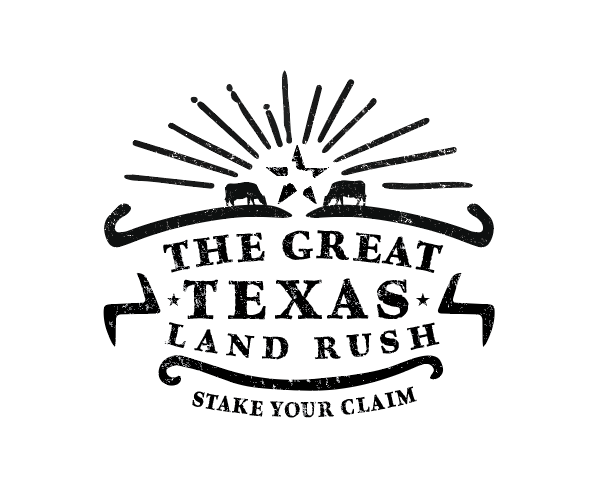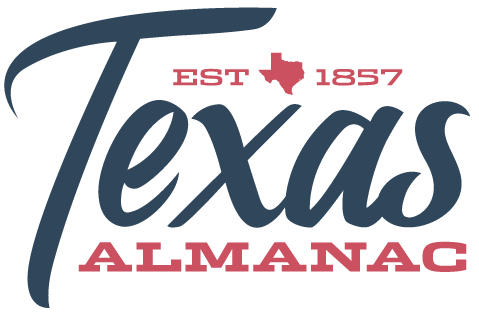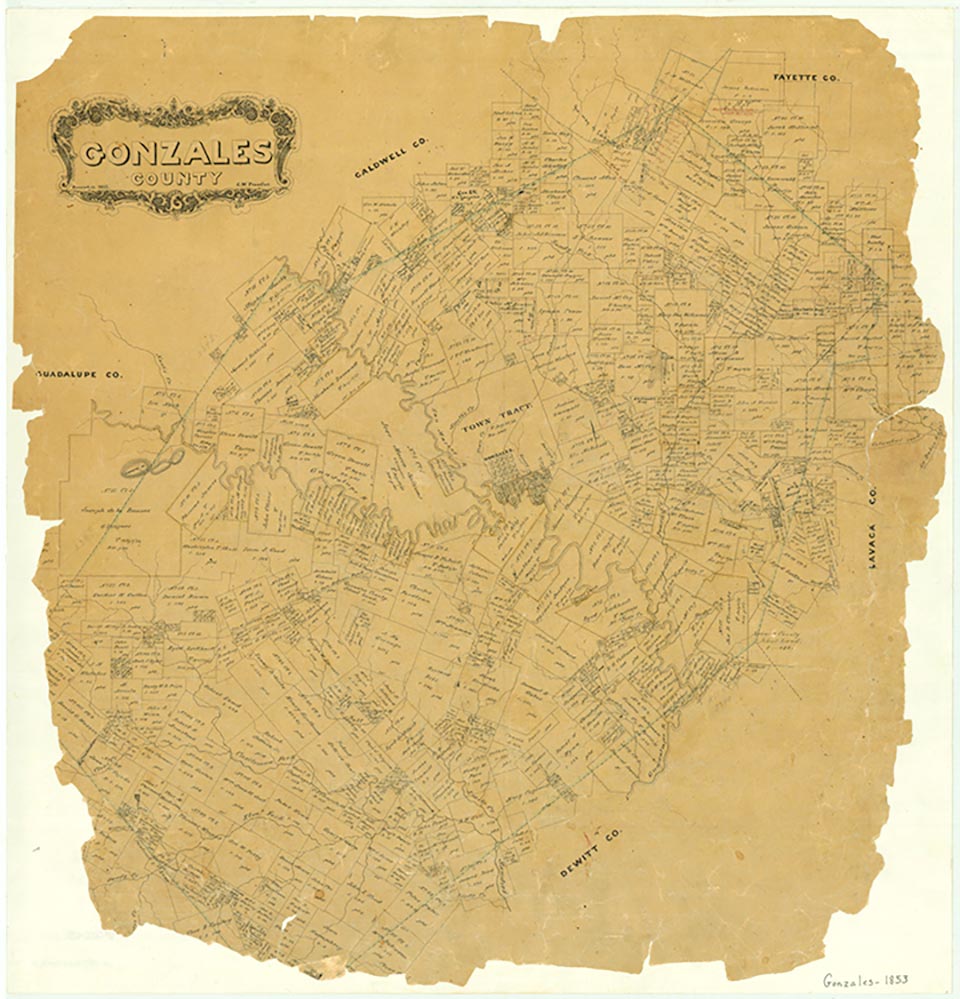Monthalia
Monthalia, on State Highway 466 fourteen miles west of Gonzales in west central Gonzales County, developed around a church and a Masonic lodge established in 1868. As early as 1846 the first settlers had arrived in the area, among them Phelps White, who supposedly named the area Mount Thalia in memory of his sweetheart, Thalia, who had died back home in Georgia. The town name was soon contracted to Monthalia. The Baptists organized in the area in 1852, and in 1869 George W. Littlefield deeded the congregation 2¼ acres for a church and schoolhouse on the south side of the Guadalupe River three miles north of Monthalia. This church was dissolved in 1892; most of its members probably transferred to the church at Cost. By the 1890s Germans had made their way into the area. A post office was established at the community in 1893 with M. L. Potts as postmaster. In November 1897 William and Arnold Siepmann rebuilt a cotton gin they had purchased from Potts. In 1900 a blacksmith shop was opened near the entrance to the Siepmann gin, and later an automotive garage was added. Meanwhile August Pape built a store across the road from the gin. In November 1900 the store was sold to Otto Afflerbach, who moved the post office there; the post office remained at that site until 1930, when it was moved to the Phillipus Brothers Store. The post office was closed in 1968, and local mail service was routed through Cost. Beginning in 1917 Arthur Pape was the community barber, operating first in the Afflerbach store and then in the Phillipus store before opening his own small shop in 1921; he closed it in 1948. For many years a butcher shop operated at Monthalia; when it closed, local residents organized a butcher club, the members of which would take turns butchering a calf each Friday. Making molasses was also a cooperative venture, as nearly every farmer grew some sugarcane. The Phillipus store was a favorite gathering place on Saturdays, when families came to buy groceries, bringing their hounds with them. After business had been transacted, a jackrabbit hunt might be organized. Medicine shows and revivals would occasionally set up next to one of the stores. Other entertainments included the Schutzenverein, or turkey shoot, as well as house dances, box suppers, quilting parties, and picnics. But the Fourth of July picnic and baseball game was the big annual community event, and in election years politicians were inevitably on hand for this occasion.
As early as 1876 there were schools in the vicinity of Monthalia for both White and Black children. Around 1909 a school was opened closer to Monthalia proper. The Monthalia school was apparently superseded by the Needa school, established in 1916. Here, two teachers taught eight grades, with a total of as many as forty-two pupils in the same classroom. Water from the roof gutters was collected in a cistern, but during droughts water was carried from a well across the road. The proximity of the cistern once saved the girls' outhouse from burning to the ground after a teacher had tried to burn out spider webs from beneath the two-holer. A bucket brigade from the cistern saved the outhouse and the day. People would come from miles around for the school's annual ice cream supper, complete with hamburgers, chili, and baked goods; the proceeds went to the school. The Needa school closed in 1947, and students transferred to schools at Cost or at Gonzales.
Theodore F. Siepmann, Estelle K. Froehner | © TSHA

Adapted from the official Handbook of Texas, a state encyclopedia developed by Texas State Historical Association (TSHA). It is an authoritative source of trusted historical records.

- ✅ Adoption Status:
- This place is available for adoption! Available for adoption!
- Adopted by:
- Your name goes here
- Dedication Message:
- Your message goes here
Belongs to
Monthalia is part of or belongs to the following places:
Currently Exists
Yes
Place type
Monthalia is classified as a Town
Associated Names
- (Potts Mill)
Location
Latitude: 29.46884750Longitude: -97.60860710
Has Post Office
No
Is Incorporated
No
Population Count, 2009
32

